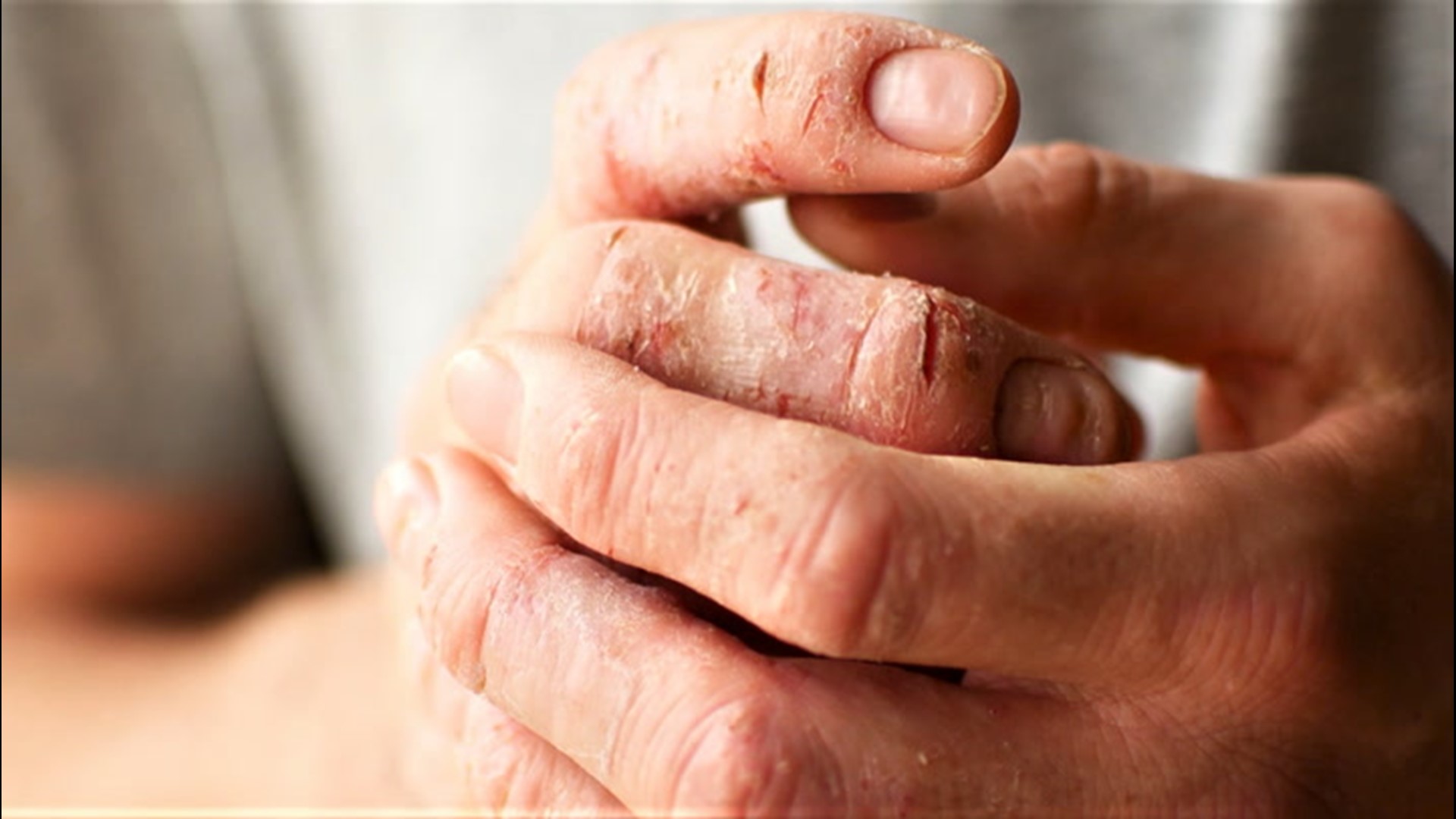Washing your hands is an essential way to slow the spread of the coronavirus and other pathogens; however, frequent handwashing can cause dry skin that could flake, itch, crack and even bleed without proper precautions.
The soap and water can zap your skin of its natural oils, leaving your hands dry and chapped. On top of that, open wounds and cracking can make skin an easy access point into the body for germs and bacteria.
Even more, winter is in full swing, bringing with it cold, dry weather that is hard on skin.
AccuWeather interviewed Dr. Carrie Kovarik, an American Academy of Dermatology Association board-certified dermatologist, to learn how to combat dry hands amid coronavirus and harsh winter weather.
"Some contributing factors to dry hands include cold/dry weather, frequent handwashing, alcohol-based hand sanitizers, skin conditions such as eczema, and coming in contact with irritants such as cleaning chemicals or bleach," Kovarik, a professor of dermatology and medicine, told AccuWeather.
With these tips from dermatologists, you can continue to wash your hands as needed to fend off COVID-19 and heal dry skin. Here's what the American Academy of Dermatology Association recommends:
Wash your hands for at least 20 seconds in lukewarm water
"The alcohol in hand sanitizers can leave hands dry, but so can frequent washing if you do not use a gentle soap or moisturize after washing. We recommend washing your hands for at least 20 seconds in lukewarm water," Kovarik said.
However, using the wrong soap and constant scrubbing when washing can irritate the skin barrier, leading to the loss of its natural oils. Many soaps contain ingredients that can trigger dermatitis, eczema or allergies, so it's best to use a fragrance-free soap.
If your hands are already dry, do not wash them less since cracked skin makes it easier for germs to get inside your body. Washing frequently helps prevent illness by removing harmful bacteria and viruses, such as the coronavirus.
"Use soap, and wash every part of your hands, including between your fingers and around your nails. Dry your hands with a clean towel, but leave some water on them," Kovarik said.
Dry your hands with a clean towel; however, leave them a little damp
You can let your hands air dry, but make sure to apply your hand cream or ointment before your hands are completely dry.
"While your hands are slightly damp, apply your hand cream or ointment. Apply hand cream or ointment to your skin, making sure you work some of the moisturizers into your fingertips and nails," Kovarik said.
According to Kovarik, using the correct moisturizer tends to feel less irritating to dry, chapped skin.
Keep your skin hydrated by applying thick hand cream or ointment to your skin, and make sure to moisturize your fingertips and nails
When looking for the right moisturizer, it's important to be mindful of product's ingredients and choose thicker moisturizers over thinner ones. Keep in mind, some products have anti-aging ingredients and fragrances that can irritate children's skin.
It's important to avoid products with fragrance, parabens, preservatives, alcohol and formaldehyde to avoid skin irritation and other health hazards. If your child has dry skin, ointments like petroleum jelly and thick white creams are quite effective at sealing in moisture.
When you use hand sanitizer, apply your hand cream or ointment immediately after the hand sanitizer dries
Since the Centers for Disease Control and Prevention (CDC) recommends using a hand sanitizer that contains at least 60% alcohol to kill germs, hand sanitizer can be very drying, especially on top of the effects of winter weather.
"Only use hand sanitizer when absolutely necessary," Kovarik said. "When you use hand sanitizer, apply your hand cream or ointment immediately after the hand sanitizer dries," Kovarik said.
If in need of rescue therapy, apply a thick moisturizer or Vaseline onto your hands and cover to leave overnight and heal while you sleep.
"If your hands get really dry and fissured, you can buy a pair of white cotton gloves, generously apply petrolatum on the hands at night, and wear the gloves. In the morning, your hands will feel better," Kovarik said.

